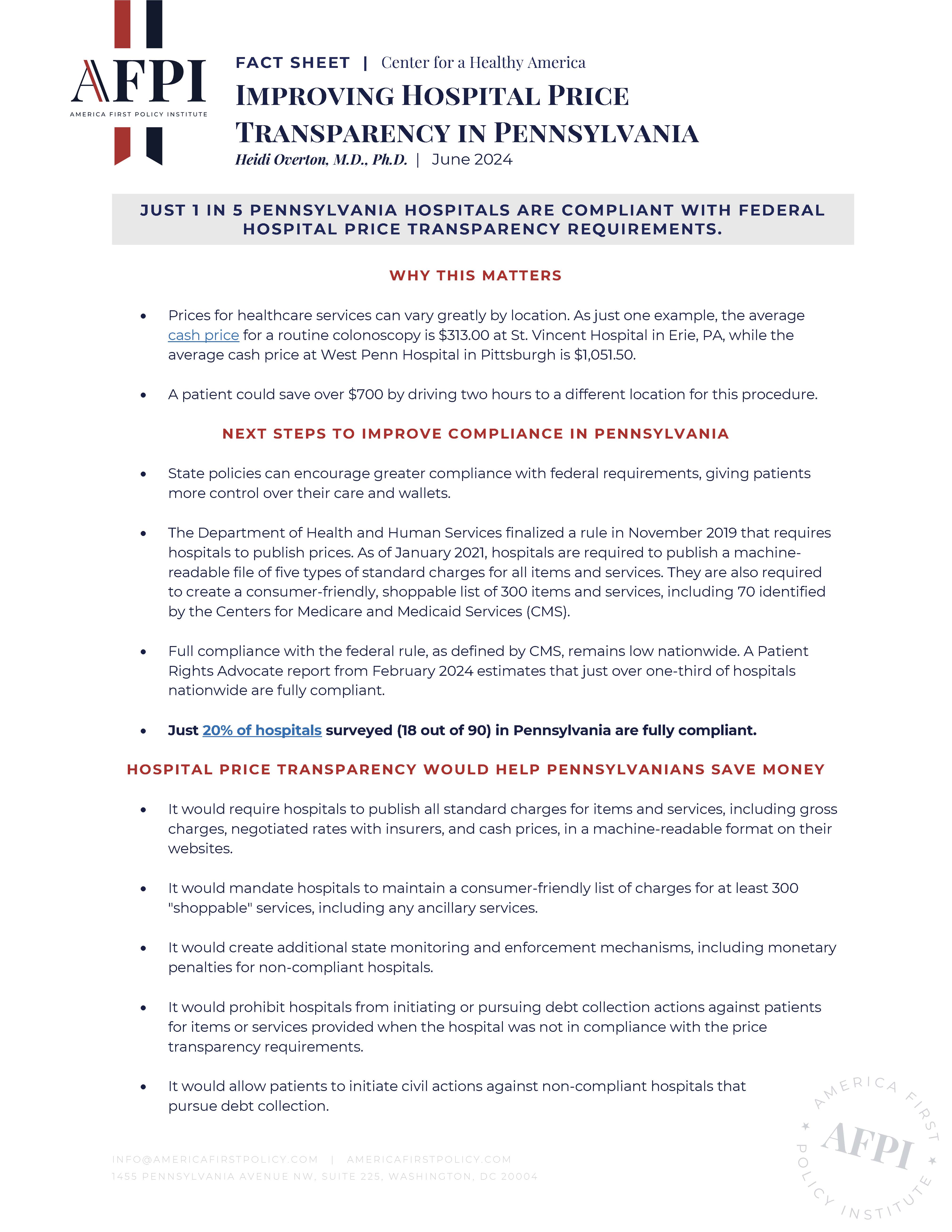Heidi Overton, M.D., Ph.D.,
June 11, 2024
Improving Hospital Price Transparency in Pennsylvania
JUST 1 IN 5 PENNSYLVANIA HOSPITALS ARE COMPLIANT WITH FEDERAL HOSPITAL PRICE TRANSPARENCY REQUIREMENTS.
WHY THIS MATTERS
- Prices for healthcare services can vary greatly by location. As just one example, the average cash price for a routine colonoscopy is $313.00 at St. Vincent Hospital in Erie, PA, while the average cash price at West Penn Hospital in Pittsburgh is $1,051.50.
- A patient could save over $700 by driving two hours to a different location for this procedure.
NEXT STEPS TO IMPROVE COMPLIANCE IN PENNSYLVANIA
- State policies can encourage greater compliance with federal requirements, giving patients more control over their care and wallets.
- The Department of Health and Human Services finalized a rule in November 2019 that requires hospitals to publish prices. As of January 2021, hospitals are required to publish a machinereadable file of five types of standard charges for all items and services. They are also required to create a consumer-friendly, shoppable list of 300 items and services, including 70 identified by the Centers for Medicare and Medicaid Services (CMS).
- Full compliance with the federal rule, as defined by CMS, remains low nationwide. A Patient Rights Advocate report from February 2024 estimates that just over one-third of hospitals nationwide are fully compliant.
- Just 20% of hospitals surveyed (18 out of 90) in Pennsylvania are fully compliant.
HOSPITAL PRICE TRANSPARENCY WOULD HELP PENNSYLVANIANS SAVE MONEY
- It would require hospitals to publish all standard charges for items and services, including gross charges, negotiated rates with insurers, and cash prices, in a machine-readable format on their websites.
- It would mandate hospitals to maintain a consumer-friendly list of charges for at least 300 "shoppable" services, including any ancillary services.
- It would create additional state monitoring and enforcement mechanisms, including monetary penalties for non-compliant hospitals.
- It would prohibit hospitals from initiating or pursuing debt collection actions against patients for items or services provided when the hospital was not in compliance with the price transparency requirements.
- It would allow patients to initiate civil actions against non-compliant hospitals that pursue debt collection.
